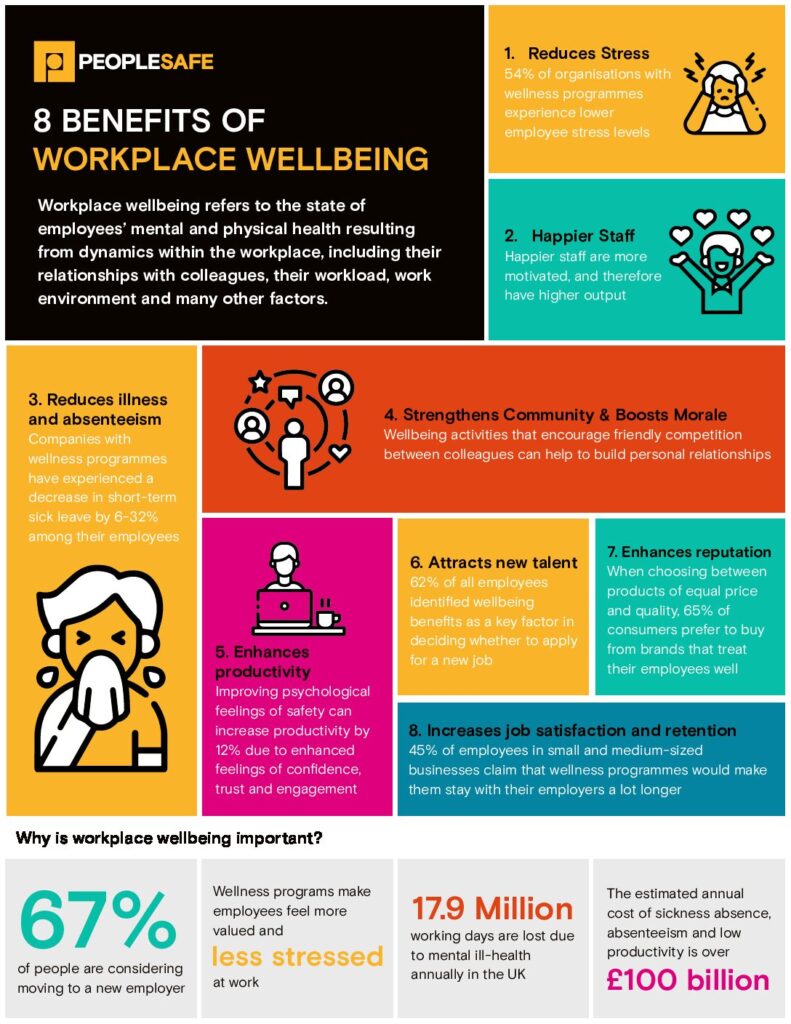8 Benefits of Workplace Wellbeing
Workplace wellbeing refers to the state of employees’ mental and physical health resulting from dynamics within the workplace, including their relationships with colleagues, their workload, work environment and many other factors.
- Reduces stress – 54% of organisations with wellness programmes experience lower employee stress levels
- Happier staff – Happier staff are more motivated, and therefore have higher output
- Reduces illness and absenteeism – Companies with wellness programmes have experienced a decrease in short-term sick leave by 6-32% among their employees
- Strengthens community & boosts morale – Wellbeing activities that encourage friendly competition between colleagues can help to build personal relationships
- Enhances productivity – Improving psychological feelings of safety can increase productivity by 12% due to enhanced feelings of confidence, trust and engagement
- Attracts new talent – 62% of all employees identified wellbeing benefits as a key factor in deciding whether to apply for a new job
- Enhances reputation – When choosing between products of equal price and quality, 65% of consumers prefer to buy from brands that treat their employees well
- Increases job satisfaction and retention – 45% of employees in small and medium-sized businesses claim that wellness programmes would make them stay with their employers a lot longer
Why is workplace wellbeing important?
- 67% of people are considering moving to a new employer
- Wellness programs make employees feel more valued and less stressed at work
- 17.9 million working days are lost due to mental ill-health annually in the UK
- The estimated annual cost of sickness absence, absenteeism and low productivity is over £100 billion

